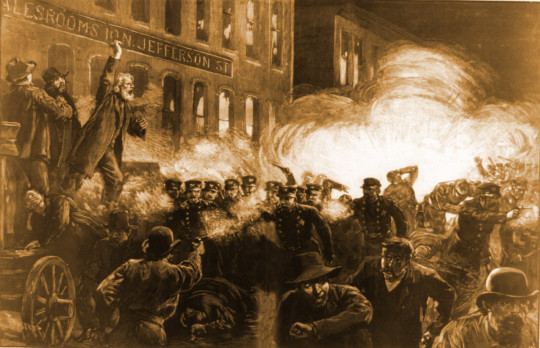#2018-06
Explore tagged Tumblr posts
Photo



#the untamed bts#theuntameddaily#cql bts#wei wuxian#jiang cheng#xiao zhan#wang zhuocheng#cql#mdzs#04/06/2018#the untamed#yunmeng siblings#twin heroes of yunmeng#yunmeng bros
3K notes
·
View notes
Text


58 notes
·
View notes
Text

David Saint Jacques - Canadian astronaut
#david saint jacques#canadian#astronaut#zen#yoga#canadian space agency#space#zero gravity#space station#floating#06/21#international day of yoga#international space station#space travel#upside down#2018#2019#2010s#iss#travel#travel see the world#stem#science
13 notes
·
View notes
Text

he hibernated for a while
#🦇 rune#🖐️ frida#06 duct taped spine#reality is disappointing sometimes 😔#this was written in 2019 btw he just woke up in 2018 now#i decided the comic would be set in 2019. while the current year was still 2019. appropriate lol#and then 2020 happened and i decided that yeah actually let's just keep it in 2019 until timeskips happen#low stakes 🦇#📗 bonus bits
8 notes
·
View notes
Text

06/03/2018
@Harry_Styles: I love it when we play 1950. [context]

#larry stylinson#larry tweets#by harry#2018#06.03.2018#mar 06 2018#1950#king princess#random gayness
2 notes
·
View notes
Text

Success for Aston Martin at the Spa 24 Hours courtesy of Comtoyou Racing! The British marque hadn't won the Belgian classic since 1948, and hadn't won a 24-hour race outright since 1959, which was the year the legendary Carroll Shelby won Le Mans with Roy Salvadori in a DBR1 (pictured above at Le Mans Classic in 2018).

Aston Martin have had success at Le Mans since, winning the GT class four times with the Prodrive-built DBR9 and Vantage GTE (pictured above at Le Mans in 2013, a tragic event for the team as Aston driver Allan Simonsen driver died in an accident early in the race). But in the races where GT3 cars are the headline, they have typically struggled to beat the powerhouse brands from Germany and Italy. Seen below is a predecessor of the new Spa winner: the 2013 V12 Vantage GT3, raced at the Nürburgring 24 Hours (pictured at Le Mans Classic in 2018).

#Aston Martin#Comtoyou#Spa 24 Hours#Vantage GTE#24 Heures du Mans#2013-06#DBR1#V12 Vantage GT3#Le Mans Classic#2018-07
3 notes
·
View notes
Text

0 notes
Text
All bets are off

When unions are outlawed, only outlaws will have unions. Unions don't owe their existence to labor laws that protect organizing activities. Rather, labor laws exist because once-illegal unions were formed in the teeth of violent suppression, and those unions demanded – and got – labor law.
Bosses have hated unions since the start, and they've really hated laws protecting workers. Dress this up in whatever self-serving rationale you want – "the freedom to contract," or "meritocracy" – it all cashes out to this: when workers bargain collectively, value that would otherwise go to investors and executives goes to the workers.
I'm not just talking about wages here, either. If an employer is forced – by a union, or by a labor law that only exists because of union militancy – to operate a safe workplace, they have to spend money on things like fire suppression, PPE, and paid breaks to avoid repetitive strain injuries. In the absence of some force that corrals bosses into providing these safety measures, they can use that money to pay themselves, and externalize the cost of on-the-job injuries to their workers.
The cost and price of a good or service is the tangible expression of power. It is a matter of politics, not economics. If consumer protection agencies demand that companies provide safe, well-manufactured goods, if there are prohibitions on price-fixing and profiteering, then value shifts from the corporation to its customers.
Now, if labor has few rights and consumers have many rights, then bosses can pass their consumer-side losses on to their workers. This is the Walmart story, the Amazon story: cheap goods paid for with low wages and dangerous working conditions. Likewise, if consumer rights are weak but labor rights are strong, then bosses can pass their costs onto their customers, continuing to take high profits by charging more. This is the story of local gig-work ordinances like NYC's, which guaranteed a minimum wage to delivery drivers – restaurateurs responded by demanding the right to add a surcharge to their bills:
https://table.skift.com/2018/06/22/nyc-surcharge-debate/
But if labor and consumer groups act in solidarity, then they can operate as a bloc and bosses and investors have to eat shit. Back in 2017, the pilots' union for American Airlines forced their bosses into a raise. Wall Street freaked out and tanked AA's stock. Analysts for big banks were outraged. Citi's Kevin Crissey summed up the situation perfectly, in a fuming memo: "This is frustrating. Labor is being paid first again. Shareholders get leftovers":
https://www.vox.com/new-money/2017/4/29/15471634/american-airlines-raise
Limiting the wealth of the investor class also limits their power, because money translates pretty directly into political power. This sets up a virtuous cycle: the less money the investor class has to spend on political projects, the more space there is for consumer- and labor-protection laws to be enacted and enforced. As labor and consumer law gets more stringent, the share of the national income going to people who make things, and people who use the things they make, goes up – and the share going to people who own things goes down.
Seen this way, it's obvious that prices and wages are a political matter, not an "economic" one. Orthodox economists maintain the pretense that they practice a kind of physics of money, discovering the "natural," "empirical" way that prices and wages move. They dress this up with mumbo-jumbo like the "efficient market hypothesis," "price discovery," "public choice," and that old favorite, "trickle-down theory." Strip away the doublespeak and it boils down to this: "Actually, your boss is right. He does deserve more of the value than you do":
https://pluralistic.net/2024/09/09/low-wage-100/#executive-excess
Even if you've been suckered by the lie that bosses have a legal "fiduciary duty" to maximize shareholder returns (this is a myth, by the way – no such law exists), it doesn't follow that customers or workers share that fiduciary duty. As a customer, you are not legally obliged to arrange your affairs to maximize the dividends paid by to investors in your corporate landlord or by the merchants you patronize. As a worker, you are under no legal obligation to consider shareholders' interests when you bargain for wages, benefits and working conditions.
The "fiduciary duty" lie is another instance of politics masquerading as economics: even if bosses bargain for as big a slice of the pie as they can get, the size of that slice is determined by the relative power of bosses, customers and workers.
This is why bosses hate unions. It's why the scab presidency of Donald Trump has waged all-out war on unions. Trump just effectively shuttered the National Labor Relations Board, unilaterally halting its enforcement actions and investigations. He also illegally fired one of the Democratic NLRB board members, leaving the agency with too few board members to take any new actions, meaning that no unions can be recognized – indeed, the NLRB can't do anything – for the foreseeable future:
https://www.npr.org/2025/01/28/nx-s1-5277103/nlrb-trump-wilcox-abruzzo-democrats-labor
Trump also fired the NLRB's outstanding General Counsel, Jennifer Abruzzo, who was one of the stars of the Biden administration, who promulgated rules that decisively tilted the balance in favor of labor:
https://pluralistic.net/2023/09/06/goons-ginks-and-company-finks/#if-blood-be-the-price-of-your-cursed-wealth
Trump is playing Grinch here – he's descended upon Whoville to take all the Christmas decorations, in the belief that these are the source of Christmas. But the Grinch was wrong (and so is Trump): Christmas was in the heart of the Whos, and the tinsel and baubles were the expression of that Christmas spirit. Likewise, labor rights come from labor organizing, not the other way around.
Labor rights were enshrined in federal law in 1935, with the National Labor Relations Act. Bosses hated – and hate – the NLRA. 12 years later, they passed the Taft-Hartley Act, which substantially gutted the NLRA. Most notably, Taft-Hartley bans "sympathy strikes" – when unions walk out in support of one another. Sympathy strikes are a hugely powerful way for workers to claim value away from bosses and investors, which is why bosses got rid of them.
But even then, bosses who were honest with themselves would admit that they preferred life under the NLRA to life before it. Remember: labor militancy created the NLRA, not the other way around. When workers didn't have the legal means to organize, they organized by illegal means. When they didn't have legal ways of striking, they struck illegally. The result was pitched battles, even bloodbaths, as cops beat and even killed labor organizers. Bosses hired thugs who committed mass murder – literally. In 1913, strikebreakers working for the Calumet and Hecla Mining Company started a stampede during a union Christmas party that killed 73 people, including many copper miners' children:
https://en.wikipedia.org/wiki/Italian_Hall_disaster
Workers didn't take this lying down. Violence was met with violence. Bombs went off outside factories and stately mansions. There was gunfire and arson. Bosses had to hire armed guards to escort them as they scurried between their estates and their fancy parties and their executive offices. The country was in a state of near-perpetual chaos.
The NLRA created a set of rules for labor/boss negotiations – rules that helped workers claim a bigger slice of the pie without blood in the streets. But the NLRA also had benefits for bosses: unions were obliged to play by its rules, if they wanted to reap its benefits. The NLRA didn't just put a ceiling over boss power – it also put a ceiling over worker militancy. Von Clausewitz says that "war is politics by other means," which implies that politics are war by other means. The alternative to politics isn't capitulation, it's war.
Trump has torn up the rules to the labor game, but that doesn't mean the game ends. That just means there are no rules.
The labor movement has many great organizer/writers, but few can match the incredible Jane McAlevey, who died of cancer last summer (rest in power). In her classic A Collective Bargain, McAlevey describes her organizer training, from a tradition that went back to the days before the National Labor Relations Act:
https://pluralistic.net/2023/04/23/a-collective-bargain/
McAlevey was very clear that labor law owes its existence to union power, not the other way around. She explains very clearly that union organizers invented labor law after they invented unions, and that unions can (and indeed, must) exist separately from government agencies that are charged with protecting labor law. But she goes farther: in Collective Bargain, McAlevey describes how the 2019 LA Teachers' Strike didn't just win all the wage and benefits demands of the teachers, but also got the school district to promise to put a park or playground near every school in the system, and got a ban on ICE agents harassing parents at the school gates.
This wildly successful strike forged bonds among teachers, and between teachers and their communities. These teachers went on to run a political get-out-the-vote campaign in the 2020 elections and elected two Democratic reps to Congress and secured the Dems' majority. McAlevey contrasted the active way good unions involve workers as participants with the thin, anemic way that the Democratic Party engages with supporters – solely by asking them for money in a stream of frothing, clickbait text messages. As McAlevey wrote, "Workplace democracy is a training ground for true national democracy."
Militant labor doesn't just protect labor rights – it protects human rights. Remember: MLK, Jr was assassinated while campaigning for union janitors in Memphis. LA teachers ended ICE sweeps at the school gates. Librarian unions are leading the fight against book bans.
The good news is that public opinion has swung wildly in favor of unions over the past decade. More people want to join unions than at any time in generations. More people support unions that at any time in generations.
The bad news is that union leadership fucking suuuuuuuucks. As Hamilton Nolan writes, union bosses are sitting on vast, heretofore unseen warchests of cash, and they just experienced a four-year period of governmental support for unions unheard of since the Carter administration, and they did fuck all with that opportunity:
https://www.hamiltonnolan.com/p/confirmed-unions-squandered-the-biden
Big unions have effectively stopped trying to organize new workers, even when workers beg them for help forming a union. Union organizing budgets are so small as to be indistinguishable from zero. Despite the record number of workers who want to be in a union, the number of workers who are in a union actually fell during the Biden years.
Indeed, some union bosses actually campaigned for Trump, a notorious scab. Teamsters boss Sean O'Brien spoke at the fucking RNC, a political favor that Trump repaid by killing the NLRB and every labor enforcement action and investigation in the country. Nice one, O'Brien. See you in hell:
https://www.theatlantic.com/politics/archive/2024/08/teamster-union-trump/679513/
Union bosses squandered a historical opportunity to build countervailing power. Now, Trump's stormtroopers are rounding up workers with the goal of illegally deporting them. Fascism is on the rise. Labor and fascism are archenemies. Organized labor has always been the biggest threat to fascism, every time it has reared its head. That's why fascists target unions first. Union bosses cost us an organized force that could effectively defend our friends and neighbors from Trump's deportation stormtroopers:
https://prospect.org/blogs-and-newsletters/tap/2025-01-28-trumps-lawbreaking-also-aimed-at-workers/
Not every union boss is a scab like O'Brien. Shawn Fain, head of the UAW, won an historic strike against all three of the Big Three automakers, and made sure that the new contracts all ran out in 2028, and called on other unions to do the same, so that the country could have a general strike in 2028 without violating the Taft-Hartley Act (Fain was operating on the now-dead assumption that unions had to play by the rules):
https://pluralistic.net/2024/11/11/rip-jane-mcalevey/#organize
A general strike isn't just a strike for workers' rights. Under Trump, a general strike is a strike against Trumpism and all its horrors: kids in cages, forced birth, trans erasure, climate accelerationism – the whole fucking thing.
A general strike would build the worker power to occupy the Democratic Party and force it to stand up for the American people against oligarchy, rather than meekly capitulating to fascism (and fundraising), which is all they know how to do anymore:
https://pluralistic.net/2025/01/10/smoke-filled-room-where-it-happens/#dinosaurs
But before we can occupy the Dems, we have to occupy the unions. We need union bosses who are committed to signing up every worker who wants workplace democracy, and unionizing every workplace in spite of the NLRB, not with its help. We need to go back to our roots, when there were no rules.
That's the world Trump made. We need to make him regret that decision.

If you'd like an essay-formatted version of this post to read or share, here's a link to it on pluralistic.net, my surveillance-free, ad-free, tracker-free blog:
https://pluralistic.net/2025/01/29/which-side-are-you-on/#strike-three-yer-out
#pluralistic#labor#nlra#nlrb#jennifer abruzzo#national labor relations board#national labor relations act#unions#organize#general strike#general strike 2028
2K notes
·
View notes
Text

vince
#yahn#vs#stolen youth#2013#hell can wait#2014#summertime '06#2015#prima donna#2016#big fish theory#2017#fm!#2018#gotta bump the other works🤔
0 notes
Text

0 notes
Text

#jgy lol#Is he really holding Lan Xichen by the ribbon#cql bts#cql cast#wang yibo#liu haikuan#zhu zanjin#17/06/2018
1K notes
·
View notes
Text


#robron#robert sugden#aaron dingle#seb white#emmerdale#robron + seb#the sugden-dingles#mill cottage#gifs#my gifs#2018#18/09/18#06/11/18
47 notes
·
View notes
Text
putting this in its own post:
9-1-1 backstory timeline, as far as I can tell
***UPDATED***
1962: Emmett Washington born 1968: Athena born 1968: Bobby born 1976: Abby born 1977: Tanya Kingston killed 1980: Chimney born 1980/81: Hen born 1984: Maddie born 1985: Chimney moves to the US 1989/90: Hen's father leaves 1989: Athena quits law school to become a cop 1989: Daniel Buckley diagnosed with leukemia 1990: Emmett killed 1991: Buck born 1991: Chimney's dad goes back to Korea 1992: Eddie born 1993: Daniel dies 1996: Buck learns how to ride a bike 1996/97: Hen gets hit by a stray bullet like a true lesbian 2003: Athena marries Michael, May Grant born 2003: Robert Nash Jr born 2004: Maddie moves to Boston with Doug and starts nursing school 2005: Brook Nash born 2005: Chimney and Kevin join the LAFD 2005/06: Kevin dies 2008: Harry born 2010: Hen quits pharma and joins the LAFD, breaks up with Eva, meets Karen, U-hauls with Karen, and adopts Denny. 2010: Eddie enlists in the army 2011: Christopher born 2012: Buck leaves Pennsylvania and starts traveling. 2013: Eddie re-enlists 2014: Marcy, Brook and Robert Jr Die in an apartment fire 2015: Eddie's helicopter crashes. He returns to Texas and Shannon moves to LA 2014: Gerrard is removed from the 118 2015: Buck leaves Peru for LA 2016: Bobby joins the 118 2016(?): Eddie and Chris move to LA 2017: Buck joins the 118 2018: Maddie moves to LA, Eddie joins the 118
332 notes
·
View notes
Text



06/12/2018
@Louis_Tomlinson: Proper confused. What a hypocrite! [context]
@Louis_Tomlinson: Anywayyyyy just signed off on the final production of something I’m very excited about :)
@Louis_Tomlinson: Also have to say X Factor was such an amazing experience! Can’t believe it’s over. Thank you to the whole team and all the contestants!
1 note
·
View note
Text
Hard Carry Masterlist

Summary: Y/n really doesn't have time for love. Debuting in Formula One at the young age of 17 before completely dominating the sport ever since, romance, had always been something that's never been on her top priority list. At least, that is, until a boy with green eyes and sweet smile appeared in her life.
or
in which a formula one legend herself caught some feelings towards Ferrari's newly crowned prince.
Pairing: Charles Leclerc x driver!reader
Table of contents
00. she's a star, she's the moment, she's y/n
01. it's 2018, baby!
02. down under
03. brocedes esque
04. life of a party
05. her house
06.
07.
smau!
00.
#formula 1#charles leclerc#formula one x reader#formula one masterlist#charles leclerc fanfic#charles leclerc imagine#charles leclerc x reader#charles leclerc x female reader#formula one imagine#formula one fanfiction#formula one x y/n
1K notes
·
View notes
